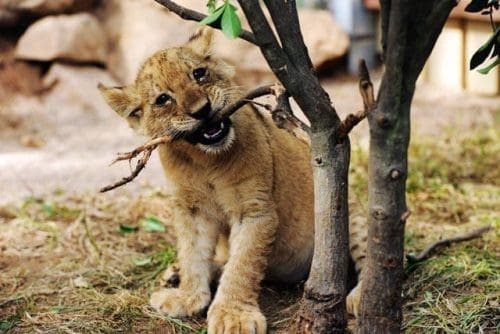Ghana is ramping up its fight against illegal wildlife trade through strengthened international partnerships and new economic strategies, protecting endangered species while safeguarding revenue streams that local communities depend on for survival.
Mr. Richard Gyimah, Director of Stakeholders and Ecotourism at the Wildlife Division of the Forestry Commission, says wildlife trafficking poses one of the most serious threats to the country’s biodiversity and the livelihoods of rural communities who live near protected areas. It’s not just an environmental problem anymore, it’s become an economic crime that robs the nation of tourism revenue and destroys the natural capital that sustains thousands of families.
“Wildlife trafficking is not just an environmental issue, it’s an economic crime,” Mr. Gyimah said in a recent interview. The illegal trade devastates ecosystems and undermines legitimate ecotourism enterprises that pour millions of cedis into local economies annually.
Ghana reportedly loses between USD 10 million and USD 12 million each year from illegal poaching and trafficking of protected species such as pangolins, parrots, and bushmeat, according to Wildlife Division estimates. Beyond the immediate financial hit, the trade weakens Ghana’s reputation as a responsible ecotourism destination, potentially discouraging high value tourism investments that could create jobs and generate tax revenue.
The economics behind wildlife crime networks are surprisingly sophisticated. Mr. Gyimah explained that these operations span borders, linking local poachers to international buyers through supply chains that rival legitimate businesses in their complexity.
“Demand from Asia, Europe, and parts of the Middle East continues to drive illegal hunting and exportation,” he noted. Ghana’s ports and airports have unfortunately become transit points for wildlife products originating from across West Africa, making the country a hub in trafficking routes that stretch across continents.
This transit role matters because it diverts income away from legitimate conservation and tourism activities that could employ local youth and generate state revenue. When a pangolin gets smuggled through Kotoka International Airport instead of attracting tourists to a wildlife sanctuary, everyone loses except the criminals.
To counter these threats, Ghana has intensified collaboration with INTERPOL, the World Customs Organization, and the Convention on International Trade in Endangered Species of Wild Fauna and Flora. These partnerships gained momentum through operations like Thunder 2024, where 138 countries coordinated efforts that led to nearly 20,000 animal seizures and 365 arrests globally.
“Our partnerships with international agencies have led to better intelligence sharing, joint operations, and improved training for customs and wildlife officers,” Mr. Gyimah said. The Wildlife Division has also been working with the United Nations Office on Drugs and Crime and the U.S. Fish and Wildlife Service to strengthen legal frameworks and enhance monitoring capacity at exit points.
Progress is happening, he insists. Several arrests and prosecutions have been made domestically, and Ghana’s ability to trace trafficking routes and dismantle networks has improved significantly over the past few years.
But Mr. Gyimah stressed that enforcement alone won’t end wildlife trafficking. Economic incentives for conservation must complement the crackdown on criminals. People living near wildlife habitats need to see more value in protecting animals than in selling them to middlemen who offer quick cash.
“When communities benefit from tourism or conservation projects, the incentive to poach declines,” he explained. Ghana’s Community Resource Management Areas offer a successful model where local communities share proceeds from ecotourism and sustainable resource use, creating economic alternatives to poaching.
By integrating conservation with community business models like eco lodges, cultural tours, or legal wildlife breeding programs, Ghana can reduce poverty while protecting biodiversity. It’s a strategy that recognizes people won’t protect wildlife if doing so means their children go hungry.
Beyond traditional donor funding, Mr. Gyimah suggested Ghana should explore green taxes and wildlife conservation levies to fund anti trafficking operations and invest in ecological monitoring systems. Emerging carbon and biodiversity credit markets could provide long term funding that aligns economic incentives with environmental protection.
“The illegal wildlife trade thrives where enforcement is weak and funding is scarce,” he said. “Innovative financing can change that equation.” Global estimates suggest illegal wildlife trade generates up to USD 20 billion annually, making it one of the world’s most lucrative criminal enterprises.
The sophistication of trafficking networks shouldn’t be underestimated. Investigations have revealed suspects using multiple profiles and linked accounts across social media platforms and marketplaces to expand their reach, making detection increasingly challenging for authorities.
Mr. Gyimah believes Ghana’s success will depend on three pillars: maintaining global partnerships, tightening domestic enforcement, and linking conservation efforts with economic empowerment for communities. There’s no single solution that works in isolation.
“The fight against wildlife crime is part of a bigger economic agenda,” he concluded. “It’s about protecting our tourism assets, sustaining jobs, and positioning Ghana as a leader in green growth.”
Ghana’s involvement in international efforts comes as the European Union awarded the International Consortium on Combating Wildlife Crime €27 million in early 2025 to tackle organized crime networks trafficking wildlife globally. Such investments signal growing recognition that wildlife crime threatens not just animals but entire economies and communities.
With support from international partners and growing public awareness, Ghana aims to turn the tide against wildlife trafficking. The goal is transforming the country’s forests and wildlife from targets for exploitation into sources of sustainable prosperity for communities who’ve lived alongside these species for generations.
Success won’t happen overnight. But if communities see tangible benefits from conservation, if enforcement agencies receive adequate funding and training, and if international cooperation continues strengthening, Ghana could become a model for how developing nations protect biodiversity while lifting people out of poverty.
Source: newsghana.com.gh











